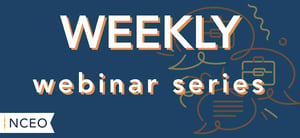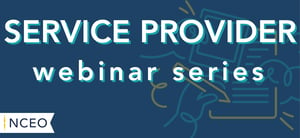Congratulations to Joseph Blasi
Dr. Joseph Blasi, one of the driving forces of academic interest and research on employee ownership, has stepped down from his role as the director of the Institute for the Study of Employee ...
IN-PERSON MEETING
Join us in San Diego this July for Is an ESOP Right for You?, a workshop for businesses considering an employee stock ownership plan (ESOP). Learn how an ESOP works, why hundreds of business owners sell to ESOPs each year, and how to evaluate selling your business to an ESOP.
July 14-15, 2025 | San Diego, CA
NEW SURVEY REPORT
The NCEO's 2024 ESOP Executive and Director Compensation Survey report is now available. Thank you to all of our 553 respondents!

Become an NCEO member to access countless resources and benefits that help you navigate employee ownership. Whether you're considering a transition to employee ownership, administering an existing plan, or providing services in the field, NCEO membership connects you to essential resources and a vibrant community.
Dr. Joseph Blasi, one of the driving forces of academic interest and research on employee ownership, has stepped down from his role as the director of the Institute for the Study of Employee ...
On June 11, 2025, Oregon Governor Tina Kotek signed House Bill 3646 (HB 3646) into law, marking a key development for the employee ownership movement in the state. This legislation, which we ...
Employee ownership trusts (EOTs) offer a powerful and flexible model for business succession. Yet, despite growing support programs and clear benefits, only about 60 EOTs currently operate in the US. ...
Leadership isn’t defined by title; it starts with how we show up every day. That’s the spirit behind the NCEO’s newest member benefit: the Rising Leaders Peer Network. Created for emerging leaders at ...
The San Diego gathering of OWN Health captive members offered a window into how employee-owned companies are reimagining healthcare benefits through collective action. With 13 member companies ...

This interactive webinar uses William Bridges simple and memorable change model to help participants leverage the event that is the ESOP transaction and guide employees through the transition of taking up their roles in new ways in an ownership culture.

Many new ESOPs include a requirement that within a specified period the financials must be updated and if certain parameters have not been met a Purchase Price Adjustment will be required. During this session our presenters will review the steps that Plan Sponsors should be taking, communication with their TPA as well as the affect on an ESOP's required loan payments and share release.

ESOPs require more than just good leadership—they demand a unique kind of leader. In these organizations, leaders must not only drive performance, but also align with the values of ownership, collaboration, and long-term stewardship. In this interactive session, Strategic Talent Partners Principals Bill Frommelt and Todd Johnson will discuss what makes an ESOP leader successful, how to evaluate those qualities effectively, and how to make hiring decisions that strengthen your culture and drive performance.


Employee ownership is a term for any arrangement in which a company’s employees own shares in their company or the right to the value of shares in their company. Employee ownership is a broad concept that can take many forms, ranging from simple grants of shares to highly structured plans. The most common form of employee ownership in the U.S. is the employee stock ownership plan (ESOP), a highly tax-advantaged plan in which employees own shares through a trust funded by the company. Other forms of employee ownership include stock options, stock grants, synthetic equity (granting the right to the value of shares but not the shares themselves), worker cooperatives, and employee ownership trusts.
If you wonder if employee ownership might be a good fit for your company, learn more about its different forms in our free booklet Who Should Own Your Business After You?. If you already know an ESOP is the most likely candidate, our prefeasibility toolkit and tax advantage calculator can help you decide next steps. For other forms of employee ownership, visit this table for a side-by-side comparison.
The NCEO and the employee ownership community can help you make the most of your ESOP. Our resource toolkits are a good place to start to learn about best practices in corporate governance, repurchase obligation, financing, and more. You can also use our readymade communications resources and join peer networking groups or leadership cohorts.
We answer common questions about being a participant in an ESOP or you can learn why you might want to work at an employee-owned company. We can also help if you are curious about what the research says or if you are looking for readymade resources to help communicate employee ownership to your coworkers.
If you are already working with employee-owned companies, our toolkits and communications resources can help you support your clients, and our publications and live and online events can keep your knowledge current (and provide continuing education credits!). If you want to learn about the field, start with What is Employee Ownership? or our ESOP prefeasibility toolkit.